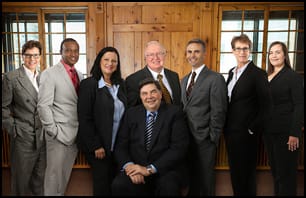COVID-19 Q&A
QUESTION: In returning to work, is my workplace safe?
Effective June 1, 2020, Minnesota Governor Walz authorized an expansion of re-opening non-critical businesses under strict requirements, including each employer creating and implementing a “COVID-19 Preparedness Plan” following Minnesota Occupational Safety and Health Administration (“MNOSHA”) Standards and Minnesota Department of Health (“MDH”) and Centers for Disease Control (“CDC”) Guidelines. As employees who have not been working or have been working remotely are called back to work by their employers, they may encounter workplaces that give them concern for their safety.
Employee Safety Rights – The Occupational Safety and Health Administration requires employers to establish a workplace that is “free from recognized hazards that are causing or are likely to cause death or serious physical harm” to employees. 29 U.S.C. § 654(a)(1). If you believe your employer’s response to the possible spread of COVID-19 creates a serious safety hazard or if you think your employer is not following applicable safety standards, you can file a complaint with MNOSHA.
Employee Anti-Retaliation Rights – On May 13, 2020, Gov. Walz issued Executive Order 20-54 (https://mn.gov/governor/assets/EO%2020-54%20Final_tcm1055-431913.pdf), which was not rescinded by Executive Order 20-63 on May 27, 2020. Paragraph 1 of this Order protects employees from discrimination and retaliation for the “worker communicating orally or in writing with management personnel about occupational safety or health matters related to COVID-19, including asking questions or expressing concerns.” In addition, Minnesota Statutes Section 182.654, Subd. 11, provides that, “[a]n employee acting in good faith has the right to refuse to work under conditions which the employee reasonably believes present an imminent danger of death or serious physical harm to the employee,” which includes employee assignment “to work in an unsafe or unhealthful manner with a hazardous substance, harmful physical agent or infectious agent.” This law also prohibits an employer from discriminating against an employee for refusing “to perform assigned tasks if the employee has requested that the employer correct the hazardous conditions but the conditions remain uncorrected.” Executive Order 20-54 specifically directs that “[t]hese situations should be immediately reported to the Minnesota Department of Labor and Industry (“DLI”).”
QUESTION: In Minneapolis, Mask or No Mask?
WHAT MAY AN EMPLOYER ASK EMPLOYEES ABOUT COVID-19-RELATED
CONDITIONS UNDER THE AMERICANS WITH DISABILITIES ACT (ADA)?
As employees return to the workspace following shutdowns related to the COVID-19 virus, employers need to be prepared to provide a safe and healthy environment. The EEOC has provided additional guidelines in light of the pandemic virus for employers to inquire of returning employees about disabilities and medical information.
Below are a few examples provided by the EEOC for employers preparing to return employees to work:
1. Question: May an employer ask an employee if they have symptoms of the virus?
Answer: An employer may ask the employee if they are experiencing any symptoms, such as chills, cough, shortness of breath, or sore throat. Employers may also ask additional questions about new loss of smell or taste, nausea, and vomiting. If the employee’s answer is “yes,” employers may require the employee to go home or stay home if calling in sick. Employers must maintain all information about employee illness as a confidential medical record.
2. Question: May an employer administer a COVID-19 test to employees before they enter the workplace?
Answer: Yes, an employer may test employees to determine if they have the virus. Consistent with the ADA standard, employers must use accurate and reliable tests.
3. Question: May an employer ask whether an employee needs a reasonable accommodation when returning to work?
Answer: Employees who are in a high risk category may need a reasonable accommodation, but employers should not ask directly whether an employee has a disability or whether the employee is in a high risk category. Instead, the EEOC advises employers to follow the ADA interactive process and may ask questions to determine whether the condition is a disability; discuss how the requested accommodation would assist the employee in working; and explore alternative accommodations that may effectively meet the employee’s needs; and request appropriate medical documentation if necessary.
4. Question: May employers ask employees to follow new safety procedures?
Answer: Yes, employers must implement infection control practices, such as social distancing, frequent handwashing, and using disinfectants in work areas. NOTE: Minneapolis requires the use of masks when indoors in spaces of public accommodation.

